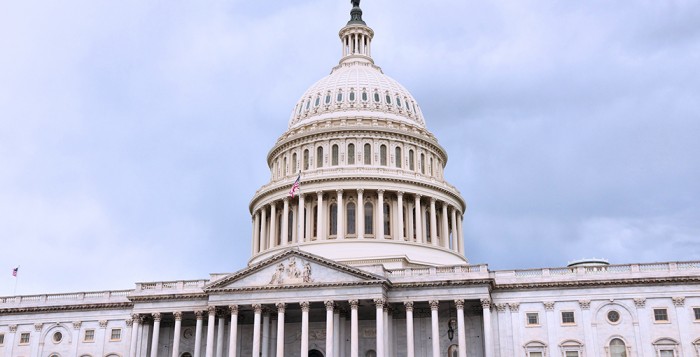Jack Phillips
2020 Federal Grants Technical Assistance Webinar
Mark your calendars and plan to join us for a FREE Federal Grants Technical Assistance Webinar on
May 21 from 10:00 am – 11:15 am. The U.S. Department of Health and Human Services (HHS),
Health Resources and Services Administration (HRSA), Region III Office, will present key steps
and resources for seeking federal grants. This session is recommended for community partners
interested in learning more about federal grant support for health and human service programs.
Individuals at all levels of experiences, from those considering a first grant submission to those with prior grant writing experience, are welcome.
Topics that will be covered are:
– Overview of HHS/HRSA national and regional offices
– Identifying federal grant opportunities
– Navigating the federal grant application process
– Accessing technical assistance resources
– Overview of fiscal grant requirements
Presenters:
Rhonda Jackson, MSW
Public Health Analyst
HRSA/Office of Regional Operations
Region III – Philadelphia Regional Office
Stephanie Sowalsky, CPA
Special Assistant to the Director of Division of Financial Integrity
HRSA/Office of Financial Assistance and Management (OFAM)
In order to receive the link to the webinar, you will need to register here. The link will be sent out a few
days prior to the webinar.
DDAP Announces Pennsylvania Advisory Council on Drug and Alcohol Abuse Meeting
The Department of Drug and Alcohol Programs (DDAP) announced call-in details for tomorrow’s Pennsylvania Advisory Council on Drug and Alcohol Abuse meeting.
4/23/2020 – View meeting agenda
*Due to the COVID-19 pandemic, this meeting will be held at the same time (1–3 PM) by Skype for Business audio conference call. Public participation is permitted via teleconference by dialing 267-332-8737 and using Conference ID – 197706440# during the meeting. The Secretary of the Department will ask the Advisory Council members who are present and all public participants to identify themselves.
Questions? Contact [email protected].
Joint Hearing on Wolf Administration’s Response to COVID-19: Watch Live
The Pennsylvania Senate will be holding a Joint Hearing on Wolf Administration’s Response to COVID-19 on Thursday, April 23 at 10:00 am – Watch Live
Released: Apr 22, 2020
Thursday, April 23 at 10 am
Senate Chamber and Virtual Participation
JOINT HEARING
Senate Community, Economic & Recreational Development Committee
AND
Senate Veterans Affairs & Emergency Preparedness Committee
10:00 Opening Remarks
Panel #1
- Gene Barr, President and CEO, Pennsylvania Chamber of Business and Industry
- Gordon Denlinger, State Director, NFIB Pennsylvania
- Jon O’Brien, Executive Director, General Contractors Association of Pennsylvania
- Bill Festa, President, Pennsylvania Association of Realtors
- Matt Stuckey, President, Stuckey Automotive
- Heather Miller, CEO, School Express, Inc.
11:00 Panel #2
- Rachel Levine, Secretary, Pennsylvania Department of Health (DOH)
- Dennis Davin, Secretary, Pennsylvania Department of Community & Economic Development (DCED)
- David (Randy) Padfield, Director, Pennsylvania Emergency Management Agency (PEMA)
1:00 Adjournment
Wolf Administration Announces Business Loan Deferrals
FOR IMMEDIATE RELEASE
April 22, 2020
Harrisburg, PA – Today, Department of Community and Economic Development (DCED) Secretary Dennis Davin announced that the Pennsylvania Industrial Development Authority (PIDA), Pennsylvania Minority Business Development Authority (PMBDA), and Commonwealth Financing Authority (CFA) are deferring loans and that the maturity dates and amortization schedules of all applicable loans are extended by three additional calendar months.
“As we look to the future for a phased reopening of Pennsylvania’s economy, it is imperative that we provide relief to businesses affected by the administration’s stay-at-home order,” said Sec. Davin. “Businesses statewide have been cooperative and made sacrifices for the health and safety of their communities, and we are committed to supporting them through the next steps ahead.”
PIDA borrowers with payments due in April, May, and June of 2020 are deferred. All other terms and conditions of all applicable loans remain unchanged.
PMBDA borrowers with payments due in April, May, and June of 2020, including principal, interest, and any associated feeds are deferred. Accrual of interest that would be included with deferred payments is suspended. All other terms and conditions of all applicable loans remain unchanged.
CFA borrowers except for PENNWORKS loans, with payments due in April, May, and June of 2020, including principal, interest, and any associated fees are deferred. Accrual of interest that would be included with deferred payments is suspended. All other terms of all applicable loans remain unchanged.
DCED continues to update its website with financial and other resources.
Businesses seeking further guidance and clarification from DCED can also contact its customer service resource account at [email protected]. For the most up-to-date information on COVID-19, Pennsylvanians should follow www.governor.pa.gov and www.doh.pa.gov.
MEDIA CONTACTS: Casey Smith, [email protected]
###
PA House advances concurrent resolution to disapprove Gov. Wolf’s overtime regulation
By Chris Comisac
Bureau Chief
Capitolwire
HARRISBURG (April 22) – Back in February, readers will recall Capitolwire reported on the state Independent Regulatory Review Commission’s vote to approve regulations that seek to increase the earnings threshold below which certain individuals will be able to receive overtime payments from their employers.
New federal overtime regulations went into effect in January, increasing the aforementioned threshold and making 61,000 Pennsylvanian executive, administrative and professional (EAP) salaried workers newly eligible for overtime.
However, Gov. Tom Wolf’s administration, frustrated by the continued opposition by a Republican-controlled General Assembly to his desire to massively increase the state’s minimum wage hourly rate (from the current $7.25 to, ultimately, $15, with that then subject to annual rate-of-inflation adjustments), decided to push a plan to further raise the overtime threshold beyond the federal level. Senate Republicans had reached a deal with the Wolf administration to raise the hourly rate to $9.50 by 2022 in return for the overtime rule being scrapped, but House Republicans rejected the deal.
Instead of the current annual income threshold of $35,568, Wolf’s regulation raises it, by 2022, to $45,500 annually (with an automatic escalator every three years), which the administration estimates would initially make another 81,000 individuals eligible for overtime.
Many of Pennsylvania’s employers, both for-profit and non-profit, who have opposed the Governor’s minimum wage effort, also oppose the overtime idea, arguing it would be another devastating blow to the many employers who operate on the thinnest of profit margins, and make for a confusing regulatory environment, with different federal and state standards. Most Republican state lawmakers have sided with Pennsylvania’s employers.
On Tuesday, GOP legislators in the House employed the last option they have to prevent Wolf’s regulation from being implemented: the regulatory concurrent resolution.
As noted in Capitolwire’s February story, both legislative chambers can pass, by majority vote, a concurrent resolution rejecting the regulation. The Governor has the ability to veto that resolution, which would then require a two-thirds vote by both legislative chambers – within 30 calendar days or 10 legislative days, whichever is a longer period of time – to override that veto. Failure to do so will allow the regulation to be implemented.
However, while the concurrent resolution process is ongoing, the regulation is on hold.
There was a bit of a kerfuffle on Tuesday in the House prompted by Democratic claims the House could not consider the concurrent resolution, as it had failed to do so within the state Regulatory Review Act’s proscribed 10 legislative days “from the date on which the concurrent resolution has been reported” from committee (it was reported on Feb. 5).
However, Democrats were counting both the House’s non-voting and voting session days – which totaled 12, including Tuesday. House Speaker Mike Turzai, R-Allegheny, informed the Democrats that, as per House precedent set in 1988, only voting session days are considered – since the resolution could not be voted on non-voting session days – which made Tuesday the ninth legislative day since the resolution had been reported.
The Senate still has time to consider the resolution as Tuesday was the chamber’s eighth voting session day since Feb. 5. The Senate is currently on 12-hour call, but their session day schedule indicates their next session day is planned for May 4.
-30-
White House and Congress Reach Interim Coronavirus Funding Deal
Updated SAMHSA FAQs for OUD Prescribing and Dispensing in the COVID-19 Emergency
In response to the novel Coronavirus Disease (COVID-19) pandemic, SAMHSA is providing updates to Frequently Asked Questions (FAQs) regarding the provision of methadone and buprenorphine for the treatment of opioid use disorder for new and existing patients. Questions, please contact Jack Phillips.
Human Services Announces Study to Assess Impact of COVID-19 on Pennsylvania Child Care Providers
Wolf Administration Encourages Residents to Support Local Restaurants with CarryoutPA.com
FOR IMMEDIATE RELEASE
April 21, 2020
Harrisburg, PA – Today, the Pennsylvania Department of Community and Economic Development’s (DCED) Tourism Office encouraged Pennsylvanians to support local restaurants by visiting the CarryoutPA website, which offers a comprehensive list of restaurants offering takeout, curbside, or delivery services during the state’s stay-at-home order.
“As this public health crisis continues to unfold, it is important that we practice social distancing and adhere to the stay-at-home order when possible,” said DCED Secretary Dennis Davin. “But it’s also critical to remember that we can all still do our part to support the restaurants in our communities as they work to provide safe dine-out options.”
CarryoutPA.com was developed by the Pennsylvania Restaurant and Lodging Association (PRLA) to serve as a go-to resource for dine-out options in support of the commonwealth’s restaurant industry, which accounts for 10 percent of jobs statewide. Pennsylvania restaurants that would like to be added to the registry can register here.
“Restaurants in Pennsylvania and the nation have been hit hard by the mandated closure of dine-in service due to COVID-19. As the statewide organization for the commonwealth’s restaurant industry, PRLA moved quickly to establish a website for restaurants to let the public know that they were open and ready to serve their communities,” said John Longstreet, PRLA president & CEO. “Any restaurant in Pennsylvania that is open for take out and delivery may add their listing to CarryOutPA.com, at no charge.”
According to the association, 4 percent of the national Gross Domestic Product is spent on eating out, with the restaurant industry generating around $863 billion in 2019. More than 70 percent of restaurants are single-unit operations, many of which are family owned.
“Small business is the backbone of Pennsylvania’s tourism industry, and we are committed to supporting our commonwealth’s business owners as we work through these unprecedented times together,” said DCED Deputy Secretary for Marketing, Tourism, and Film, Carrie Fischer Lepore. “By visiting the CarryoutPA website, Pennsylvanians can treat themselves to a safely-prepared dine-out meal while helping their community on the road to recovery from this pandemic.”
For the most up-to-date information on COVID-19, Pennsylvanians should visit: Responding to COVID-19 Guide.
The Pennsylvania Tourism Office, under the Department of Community and Economic Development, is dedicated to inspiring travel to Pennsylvania as the state’s official destination marketing organization. Pennsylvania welcomed 204 million visitors in 2019, generating a $43 billion economic impact which supports 500,000 jobs. For more information, visit the visitPA website or sign up for our Happy Thoughts newsletter, become a fan on Facebook, follow us on Twitter, check out photos on Instagram, share pins on Pinterest, or watch us on Youtube.
MEDIA CONTACT: Casey Smith, [email protected]


















